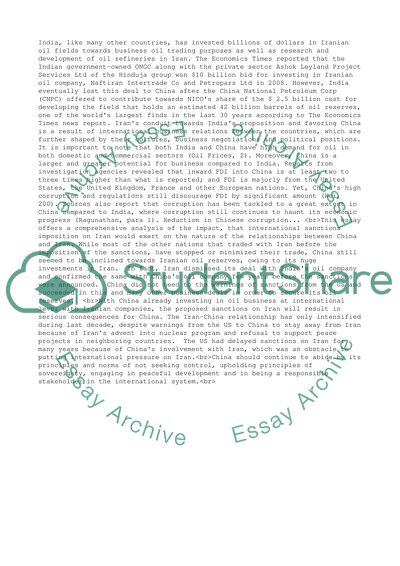Cite this document
(“Relationship Between Iran and China in Light of Economic Sanctions Essay”, n.d.)
Retrieved from https://studentshare.org/business/1397367-relationship-between-iran-and-china-in-light-of-economic-sanctions-imposed-on-iran
Retrieved from https://studentshare.org/business/1397367-relationship-between-iran-and-china-in-light-of-economic-sanctions-imposed-on-iran
(Relationship Between Iran and China in Light of Economic Sanctions Essay)
https://studentshare.org/business/1397367-relationship-between-iran-and-china-in-light-of-economic-sanctions-imposed-on-iran.
https://studentshare.org/business/1397367-relationship-between-iran-and-china-in-light-of-economic-sanctions-imposed-on-iran.
“Relationship Between Iran and China in Light of Economic Sanctions Essay”, n.d. https://studentshare.org/business/1397367-relationship-between-iran-and-china-in-light-of-economic-sanctions-imposed-on-iran.


